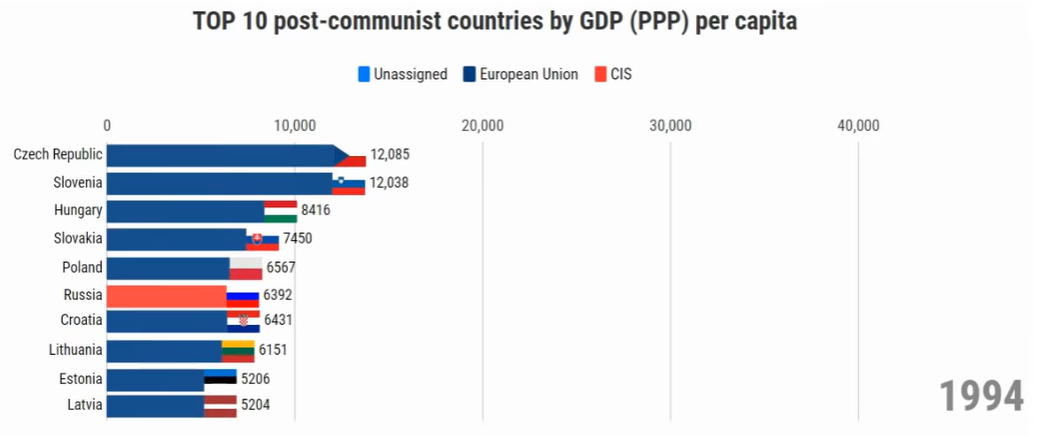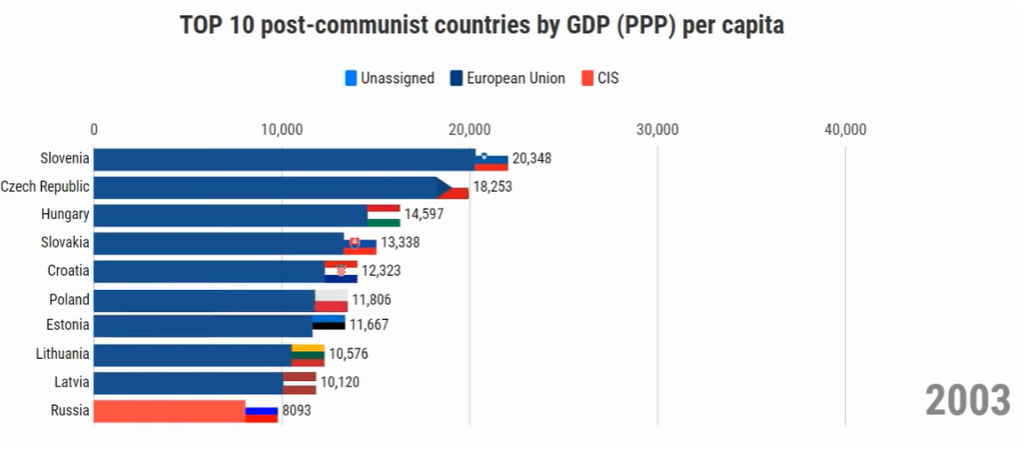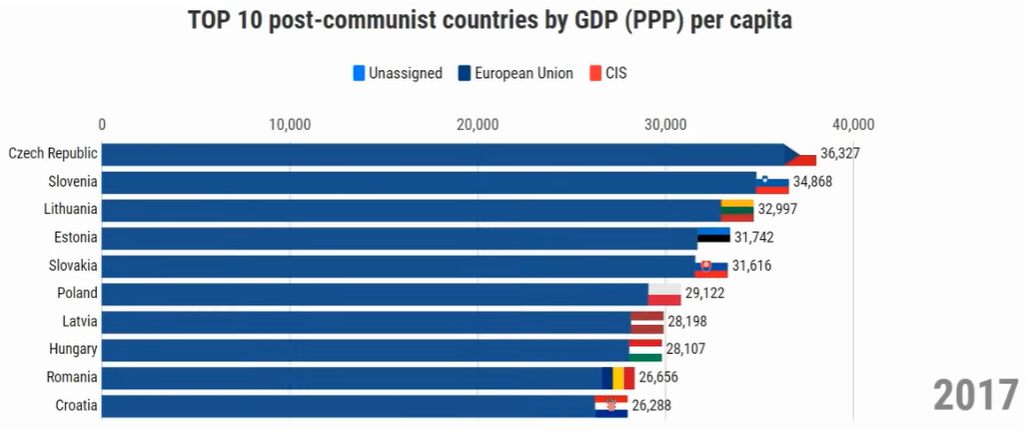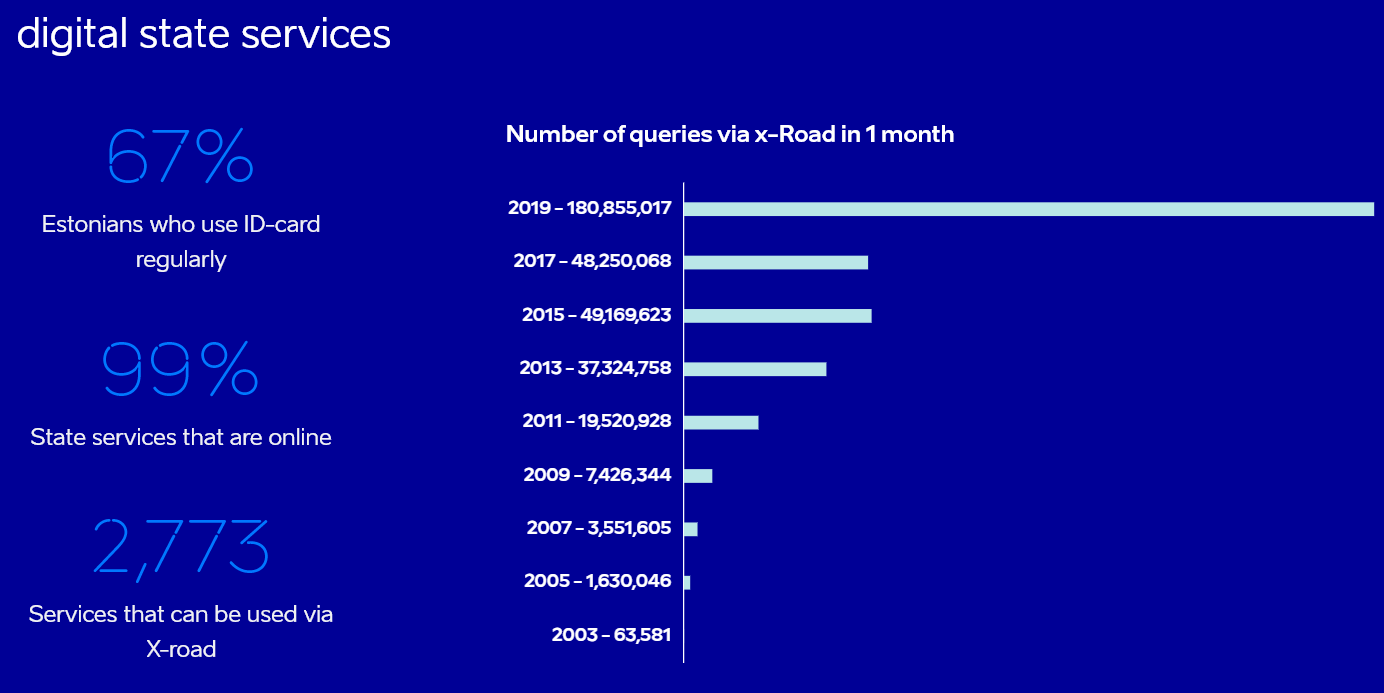January 24, 2020 - Estonia is one of the world's leading countries in digitalisation and new technology, boasting no less than 4 unicorns, and a country transformed from an ex-Soviet republic just 28 years ago. And Croatia could easily follow suit.
I have been spending a little time with officials from Estonia in recent days, which has been a lot more fun than it may sound. And a LOT more inspiring.
It is a small country of just 1.3 million people, one of the three Baltic states which emerged from the rubble of the Soviet Union with some hard choices to make, and choices it had to make fast in order to survive.
With 92% of its trade with Russia, its economy ruined by the planned Soviet economy, the ruble worthless, industrial production falling 30% in the first two years, wages by 45% while inflation rose to 1000%, it was clear that something radical would have to be done to put the newly independent country on a stable path. To learn the whole story of how Estonia did it, I heartily recommend this brilliant explanation from former Prime Minister Mart Laar: Leading a Successful Transition: the Estonian Miracle.
And it is quite a miracle. Who could have predicted back then that in a short space of time, tiny Estonia would be a beacon of innovation and global excellence, voted the very best in the world for entrepreneurial activity, start-up friendliness, and digital health? A country with no less than four start-up unicorns (Skype, Taxify, Transferwise, and Playtech), four times more than a much bigger and developed European country like Spain. And this was a tiny country where any entrepreneurial spirit had been crushed by more than 70 years of Soviet Communist rule.
So how did they do it and - more importantly - if a tiny former Soviet republic with a ruined economy could do it, could Croatia too?
And the answer to the latter question is an emphatic YES!
And relatively easily.
With such a dire economic situation in the 1990s, the Estonian government did not have the money for a large administration, and so they decided to look at offering services digitally so that it could service citizens in some of the more remote parts of the country. There are plenty of resources online (including this video above) to explain how Estonia established itself as a digital champion, but essentially it decided to base its strategy on digitalising as many of its services as possible. Not only would this reduce costs (an estimated 2% of the value of Estonia's GDP), but it would improve the quality of life of its citizens, as well as untold efficiencies. Sort out your driving licence online, access your medical records 24/7, organise a prescription, pay taxes, even vote in elections. All done with the security of the multi-layered X-Road Data Exchange Layer, which guarantees confidentiality, integrity and interoperability between data exchange parties. Some 99% of State services are now online.
No more stamps.
No more queues.
No more offices closed due to marenda.
This is not some modern Western county, but an ex-Soviet republic which had no money and very little going for it just 28 years ago.
Of course cybersecurity is a crucial issue, one I discussed yesterday with Uku Särekanno, one of the architects of Estonia's cybersecurity strategy over coffee in Zagreb. Uku was in town for the justice ministers meeting as part of Croatia's EU Presidency in his new role on Schengen cybersecurity. Apart from explaining why the system was so secure, I was impressed that Estonia had a backup plan, in case circumstances dictated a return to paper.

As a man who has spent more than his fair share of weeks standing in queues (often the wrong one), days on the phone here, the thought of being able to deal with so many things quickly and efficiently at a time to suit me, and without the need for leaving the house or any uhljebby contact, is appealing indeed. And if this Soviet republic can do it, why can't Croatia?

There is one major difference between Estonia succeeding and Croatia, and Estonia holds a huge advantage in this regard. Ironically, it has the Soviet Union to thank for enabling its current success to happen. Estonians were so against the old regime with independence that they were willing to trust their new government, which made the introduction of all this much easier, as residents were more trusting that their data would be protected. Given the polarised nature of Croatian society, there would have to be a different approach.

I think the most interesting approach - and one which the Estonians told me they would be happy to support with their know-how - would be to focus on and encourage the small seeds of change which are being planted in parts of the country. Seeds like the Mayor of Bjelovar, Dario Hrebak. As we have written previously on TCN, not only was Hrebak the first to introduce digitalisation into his administration, he then made transparently available all the expenditures of his administration. Having done that, he then reduced a surtax from 12% to 6%, reporting last week that far from this meaning less income for his administration, is has actually received 250,000 kuna MORE in the first 17 days of 2020.
DIgitalised services, an administration which accounts for all its spending transparently, and where less taxes generate more revenue. In Croatia. Imagine!
Now THAT is what I call a seed of change.
The Estonians think so too, and they have invited me to visit Tallinn, with any interested politicians, to see how the whole e-Estonia project works - as the leaders in Europe on this, they now have a well-polished tour. So if you are a Croatian politician and you fancy being a little less uhljebby and embracing the future, then contact me on This email address is being protected from spambots. You need JavaScript enabled to view it.
And if we can get a few towns to follow the Bjelovar lead, easing the lives of citizens, getting greater transparency, and seeing higher revenues from lower taxes, maybe - just maybe - we can encourage more Croatian citizens to stop just complaining in cafes and demand similar change from their mayors. And then...
The Estonian miracle has its roots in the digitalisation of its administration but it does not stop there. A major factor in the rise in its economic performance has been its early embracing of new technologies and emerging trends. It started using blockchain technology 9 years ago, and it is the number one place in Europe for one of the game-changers in the global economy in the coming years - the digital nomad.
When I mention digital nomads in Croatia, people often think I am referring to bloggers or influencers looking for a free hotel in exchange for some online exposure. And while bloggers and influencers are digital nomads - they work remotely from an Internet connection - they are a tiny fraction of the story. Many more are consultants, IT professionals, entrepreneurs, high net worth individuals.
The clearest example of how this works in the Croatian context was demonstrated by two digital nomads I met in Jelsa on Hvar last year. He was Russian, she was Ukrainian, and they both worked for an IT company in Munich. Their boss had told them that he only needed them physically in Munich 2 months a year, and they were free to work from home, or anywhere else, as long as they were available and online from the working hours of 09:00 to 17:00.
They decided to do a European tour of Croatia, Italy, Spain and Portugal, choosing Jelsa from April 1 to June 30. Their day started with a swim and coffee on the main square, then to work online in Munich. Lunch in a Jelsa restaurant, back online in Munich until 17:00, then off for a swim and an evening of entertainment in Jelsa.
Working in Germany, living and spending in Croatia. For three months, out of season.
There will be an estimated one billion digital nomads by 2035.
Estonia has made it incredibly easy for digital nomads to operate in Estonia, slashing red tape and allowing people to open businesses online. Recognising the considerable value that nomads bring to the economy, including how much they spend during their stay, the Estonian Government is now planning to introduce a long and short-term digital nomad visa, so that more nomads can benefit from the Estonian experience. This visa would come with conditions and requirements and would not be a free-for-all - you can learn more here.
Meanwhile in Croatia...
Let's leave bureaucracy aside for a moment. Croatia has arguably the best conditions for digital nomads to live and work in all Europe. Safety, English-language, lifestyle, accessibility, affordability, tourist destination, great food and wine, diversity, the list goes on. If it got just 3% of that 1 billion number above as the leading nomad destination in Europe, that would dwarf today's tourism numbers. And with nomads coming at different times, and for different reasons (read about the Denver nomad who is absolutely loving life in Osijek, for example), That would be 30 million people a year not coming for a week to an already crowded beach, but for a month or three, spending much more. The pressure to keep on devastating the Adriatic coast would be reduced, and perhaps we could move towards a responsible tourism strategy.
It could be a perfect, perfect scenario. Estonia on the Adriatic. A land where the young generation joked about their parents needing something called a 'pecat' to stamp all kinds of non-virtual documents A country where everything worked with minimal administration, and where the creativity and diversity of a new digital nomad generation was producing unicorn after unicorn.
And the sun shone, every day.
And now let's add in our Croatian bureaucracy. A bureaucracy where Americans cannot retire here as they cannot get permanent residency. A bureaucracy where non-EU digital nomads have constant issues with temporary residency. A bureaucracy which inflicts misery on its citizens on daily basis, and is notoriously corrupt, costly, and inefficient.
Rather than chairing the EU Presidency, Mr Prime Minister, why don't we all take a road trip to Tallinn and figure out how to get rid of all this pointless bureaucracy and encourage entrepreneurship instead? There are even EU funds to help us on the way. We always hear about how Croatia is a tiny country. Estonia is a tiny, TINY country, an ex-Soviet republic which started life 28 years ago with nothing. If they can do it, why can't we?
Read more - why Zagreb is increasingly attractive as a digital nomad destination.






